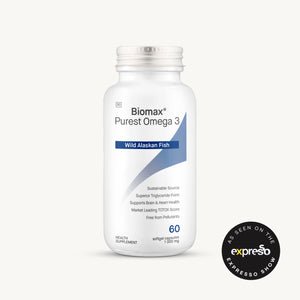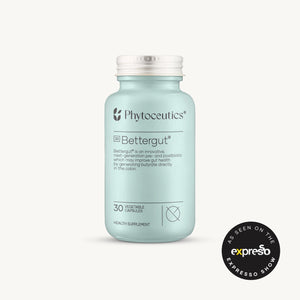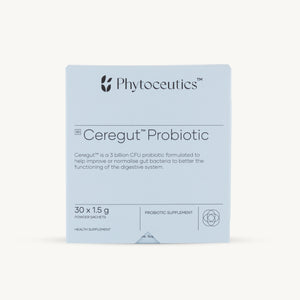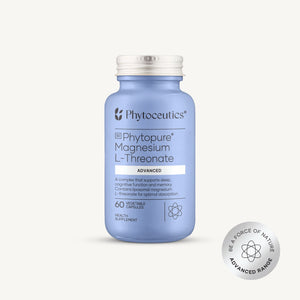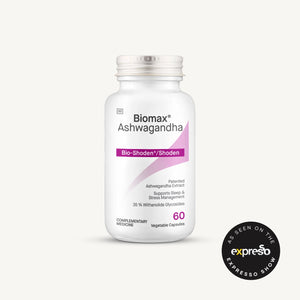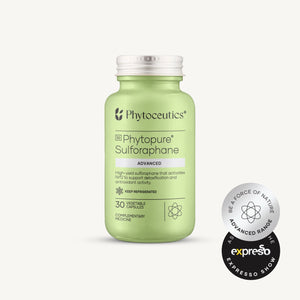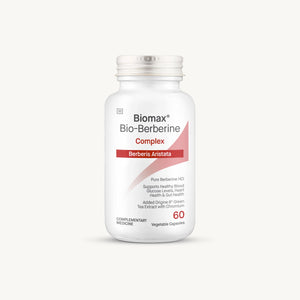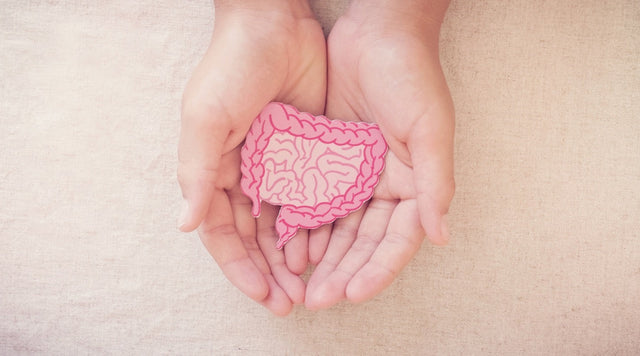Hormonal health can feel like a complex puzzle, influenced by everything from diet and exercise to stress and environmental factors. In this episode of the Her Health™ Podcast by Phytoceutics®, CEO and host Laura Johnston sits down with Dr. Ledivia Strauss, a General Practitioner with a special interest in functional, integrative, and aesthetic medicine, to explore practical strategies for optimising hormonal function, menstrual health, and general well-being. Drawing on the latest science, Dr. Strauss shares actionable tips and insights that can empower women to take control of their hormonal health and feel their best every day.
Rapid-Fire Ratings: Hormonal Support
In a fun rapid-fire rating segment, Dr. Ledivia Strauss shared her quick, candid scores for a range of popular supplements – from omega-3 to magic mushrooms – giving listeners a snapshot of what she considers essential, promising, or overhyped.
-
Omega-3 – 10/10
Extensive research; supports whole-body health. -
Probiotics – 6–7/10
Beneficial in the right setting; not everyone needs daily supplementation. -
Prebiotics – 10/10
Feeds good gut bacteria; especially important for those not getting enough fibre. -
Ashwagandha – 8/10
Helps manage cortisol balance and stress. -
Magnesium L-threonate – 10/10
Supports sleep, calm, and cognition; particularly helpful in perimenopause and menopause. -
Apigenin – 6/10
Flavonoid from chamomile; calming effect supported by research. -
Methylene blue – 2/10 as a biohacking agent.
8/10 for treating specific pathogens like chronic Lyme disease. -
Berberine – 9/10
Supports metabolic health, glucose metabolism, gut, and liver health. -
Sulforaphane – 12/10
Powerful antioxidant, supports liver and hormone health; personal favourite. -
Wild card: Magic mushrooms – 6/10
Potentially helpful in therapeutic settings, but not recommended for casual home experimentation.
Understanding Hormonal Cycles and Their Impact
Hormones act as the body’s messengers, coordinating systems that control metabolism, mood, energy, and reproduction. Dr. Strauss emphasised the importance of understanding how these cycles influence daily life. “Your hormones are constantly talking to each other,” she noted, highlighting that even small disruptions in one hormone can ripple across multiple systems.
Dr. Strauss explained how women’s cycles involve fluctuating levels of oestrogen, progesterone, and other key hormones such as insulin, serotonin, ghrelin and leptin. Dr. Strauss explains that these fluctuations affect energy levels, recovery from exercise, and even the body’s response to stress. By tuning into these natural rhythms, women can optimise exercise schedules, nutrition, and recovery periods to better align with their hormonal phases.
The Vital Roles of Oestrogen, Progesterone, and Testosterone
Dr. Strauss explained that the three key sex hormones – oestrogen, progesterone, and testosterone – each play a unique and vital role in women’s health. Oestrogen, often called the feel-good hormone, is the main driver of female physiology, influencing everything from the brain, bones, and blood vessels to the gut. As oestrogen receptors are present in nearly every tissue, when oestrogen levels drop or become imbalanced, women can experience symptoms across multiple systems in the body. Progesterone is the calming, rest-and-digest hormone, counterbalancing oestrogen’s proliferative effects, supporting deeper sleep, and helping keep anxiety in check. Meanwhile, testosterone, often thought of as a male hormone, is equally important for women. It contributes to vitality, muscle strength, performance, and libido, and is often a key factor in the confidence and energy women notice declining during menopause.
What Is a “Normal” Menstrual Cycle?
Dr. Strauss explains that instead of “normal,” it’s more accurate to focus on a regular menstrual cycle, as what’s typical varies for each person. A regular cycle usually ranges from 22 to 35 days, with consistency being key. Occasional variations – like a shorter or longer cycle after stress, travel, or illness – are generally fine. However, if cycles become consistently unpredictable, it may signal an underlying issue. She emphasised that the menstrual cycle is so important that it could be considered a vital sign in women, offering insight into hormonal and overall health.
Contraception and Hormonal Awareness
Dr. Strauss also addresses hormonal contraception, emphasising the importance of understanding its impact on the body before starting on the oral contraceptive. Synthetic hormones can influence mood, energy, and even nutrient status. Women should work closely with healthcare providers to assess which methods align best with their lifestyle and hormonal health goals. As a contraceptive, Dr. Strauss considered the oral contraceptive highly reliable. When it comes to treating chronic conditions, she suggested seeing one’s healthcare practitioner to understand the cause of menstrual abnormalities first before treating them with the hormonal contraceptive pill.
Exercise: Tailored to Your Hormonal Phase
Exercise plays a key role in hormonal balance. Dr. Strauss explains that training strategies should align with a woman’s menstrual phase. During the follicular phase (first 14 days), high-intensity workouts are often better tolerated, as cells are more insulin-sensitive and can handle higher carbohydrate intake. In contrast, the luteal phase (post-ovulation) is better suited to recovery-focused sessions, since the body is preparing for a potential pregnancy and insulin sensitivity is lower.
The Role of Stress and Recovery
Dr. Strauss explained how stress management is crucial for maintaining hormonal health. Chronic stress elevates cortisol, which can suppress reproductive hormones and impair metabolic function due to insulin spikes and excess glucose, leading to a build-up of visceral fat. Dr. Strauss advocates for simple yet effective stress recovery techniques, including:
- Mindful breathing exercises
- Staying active and exercising
- Prioritising good quality sleep
The Truth About Hormone Replacement Therapy (HRT)
Dr. Strauss sheds light on the myths surrounding hormone replacement therapy (HRT), especially for women concerned about a family history of breast cancer. She explains that having a first-degree relative with breast cancer is no longer considered a contraindication for HRT, as long as you do not have an actively growing, hormone-sensitive cancer. Modern HRT uses bioidentical hormones – like patches, gels, and oral micronised progesterone – that are structurally identical to the hormones your body naturally produces. These are vastly different from the synthetic hormones used in older studies, which were derived from pregnant horse urine and included artificial progesterone (progestin) that could act as a progesterone antagonist. Because bioidentical hormones more closely mimic the body’s own hormones, lower doses can be used safely, and treatment is easier to monitor, offering effective symptom relief without the risks associated with outdated synthetic formulations.
How to Know You’re Entering Perimenopause
Dr. Strauss explained that perimenopause doesn’t have a single “first symptom”, and it can look very different for every woman. While some may notice anxiety, sleep disturbances, or mood changes early on, others might first experience hot flashes, night sweats, or changes in their menstrual cycle, such as shorter or irregular periods. She emphasised that the key is to know your own normal – tracking your usual cycles, energy levels, and how your body responds to food or stress. When something consistently feels “off,” whether it’s unexpected weight gain around the belly area, increased insulin resistance, or even unusual physical symptoms like itchy ears, it’s worth discussing with a healthcare professional. Even if your cycles remain regular, you could still be in perimenopause, highlighting the importance of listening to your body and trusting your intuition.
Practical Tips for Everyday Hormonal Health
Dr. Strauss provided several actionable tips for supporting hormone health daily:
- Track your cycles – Understanding patterns in energy, mood, and cravings can guide exercise and nutrition.
- Prioritise nutrient-dense foods – Eating whole, minimally processed foods throughout the day is critical to support blood glucose levels.
- Incorporate strength training in your exercise routine – Muscles play a crucial role in glucose metabolism.
- Manage stress intentionally – Use mindfulness, breathwork, and structured downtime.
- Optimise sleep – Aim for consistent, quality sleep to support hormone balance.
- Prioritise community – Keep a close group of friends around for support.
- Consider supplementation for added support – Address environmental triggers and support nutritional needs with nature-based ingredients such as probiotics, sulforaphane, berberine, magnesium L-threonate, and omega-3.
By implementing these strategies, individuals can proactively support hormonal health, improve energy, and optimise performance across all areas of life.
Dr. Strauss’ insights remind us that small, consistent lifestyle adjustments – from nutrition and exercise to stress management and sleep hygiene – can profoundly impact hormonal balance. Listening to your body, tailoring interventions to your unique physiology, and leveraging recovery tools can make the difference between feeling depleted and thriving.
Use code “HERHEALTH” at checkout for 20% off your next order.
This content is for informational purposes only and does not constitute medical advice. Always consult with your healthcare provider before starting any new supplement, especially if you are pregnant, nursing, have a medical condition, or are taking prescription or chronic medication.

